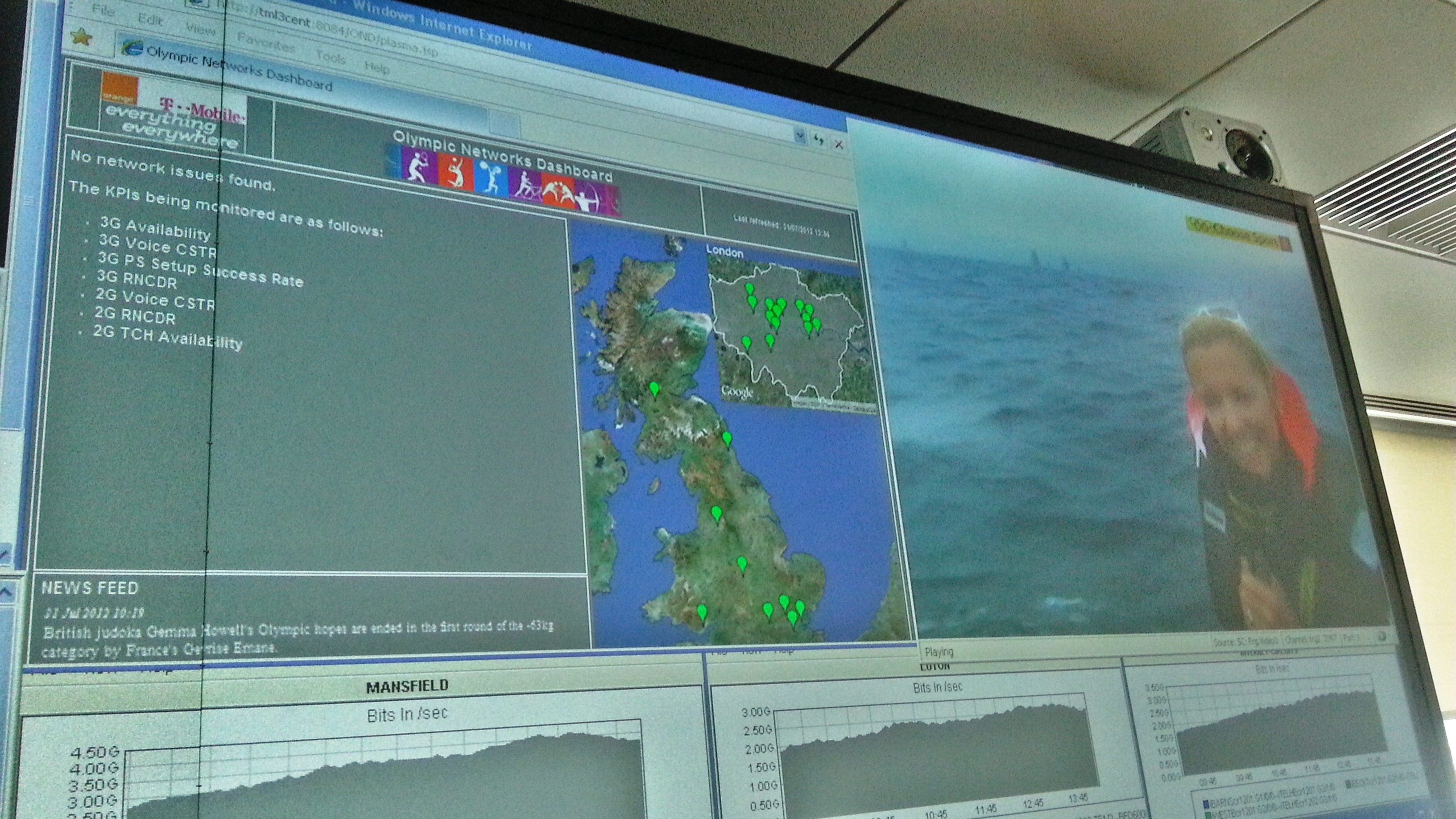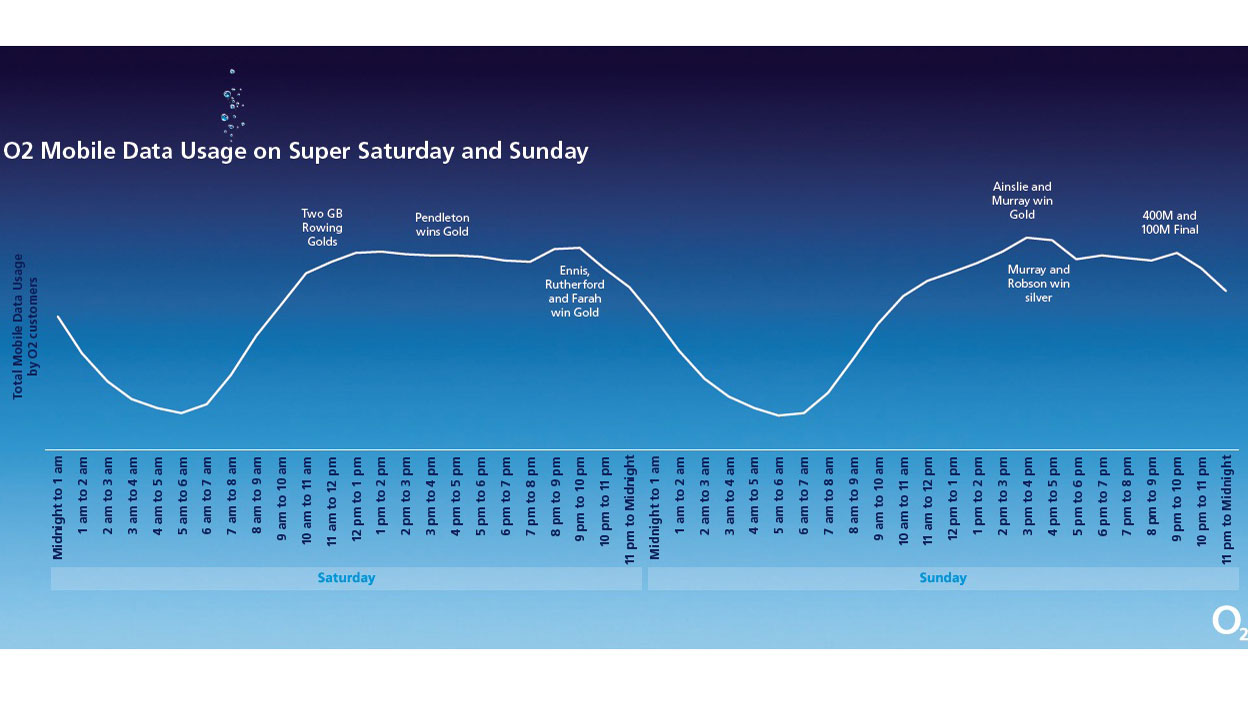The Olympic task of keeping your signal up and running during the Games
A look behind the operator's curtain
Sign up for breaking news, reviews, opinion, top tech deals, and more.
You are now subscribed
Your newsletter sign-up was successful
The Olympic Park alone saw 30 new masts erected, along with a strong Wi-Fi network to offload some of the data burden.
"When it comes to the Olympics it's a huge piece of work for us," said James Hattam, Director of Network Service Management for Everything Everywhere.
"It's early days, but the general word on the street is that everything is working as we expected it to. We've invested significantly in our infrastructure, bearing in mind the numbers of customers at different venues around the country as well as the roaming customers from around the world."
Everything Everywhere:
"When it comes to the Olympics it's a huge piece of work for us"
EE employed a number of network specialists to analyse sites around the UK, including tourist attractions, transport hubs and sporting venues, and upgraded hundreds of key sites to cope with the additional demand.
There are also engineers on hand at key sites too; while traffic can be usually routed around an incident on the network, at sites like the Olympics this isn't possible, so dedicated staff need to be on hand to manage the networks, often in difficult conditions and only at specific times.
Sign up for breaking news, reviews, opinion, top tech deals, and more.
Expected to perform
The carriers are all claiming to have been fairly robust during the games, although it's not all been plain sailing (or cycling).
One of the networks became overwhelmed during one of the early cycling road races, causing key timing data to not reach commentators, as it was being carried over the same signal.
This caused the organisers to ask fans to stop using social networks unless sending 'an important update' – but the offending network wasn't revealed.

That hasn't stopped the mobile operators claiming a strong performance during the games, with Hattam telling us:
"We saw that [the Tweet ban] but we have to say the networks are performing great; we've had people in the main stadium and at different venues around the country monitoring performance and we're really happy with the way both networks [Orange and T-Mobile] are performing."
During the games, the SMC monitors all the Olympic venues specifically, and TechRadar was shown data highlighting how both networks have run smoothly during the event so far – with places like Greenwich showing a 10x increase in data use on occasion.
O2's recently released data appears to back this up, showing consistently high levels of data usage throughout both Saturday and Sunday when Team GB was performing well.

It's worth noting that a lot of traffic would have been farmed through home Wi-Fi networks during this time as people Tweeted from their sofas, but there was also a significant increase in data being sent and received from multiple venues around the country.
So it appears everything is running smoothly during these high-traffic games – and that bodes well for the future.
On the one hand, there's the improved infrastructure, with many more base stations and investment creating more powerful networks for customers to use in the future.
Just how these networks will be provisioned is up for debate, as Hattam of EE points out that there are still a lot of legacy issues to be resolved with the Games' venues.
"Obviously the temporary [network sites] will be dismantled afterwards. However, it's not just about the Olympics, as we've invested in other areas around the country too. It's still up for debate over what happens with some of our extra sites as it depends what happens with the venues.
"For instance, the future of the Olympics Stadium is still up for grabs, and we don't know what will happen with the Athlete's Village. Until that's nailed down we won't know how the equipment will be used."
And it's not just extra hardware that will be of benefit – the data collected from how people are using the networks during a big event will be hugely useful going forward.
Everything Everywhere's SMC already had reams of data on when to expect big spikes in traffic ("The last day of the Premier League season, with men checking their phones in pubs to see other scores is one of the biggest football-related spikes," Roberts tells us) and as such can ensure that the network is ready to cope.
So BBC commentators may have lost their data momentarily during the Games, but the Olympics has brought benefits to customers in the shape of more powerful and robust networks for years to come.

Gareth has been part of the consumer technology world in a career spanning three decades. He started life as a staff writer on the fledgling TechRadar, and has grew with the site (primarily as phones, tablets and wearables editor) until becoming Global Editor in Chief in 2018. Gareth has written over 4,000 articles for TechRadar, has contributed expert insight to a number of other publications, chaired panels on zeitgeist technologies, presented at the Gadget Show Live as well as representing the brand on TV and radio for multiple channels including Sky, BBC, ITV and Al-Jazeera. Passionate about fitness, he can bore anyone rigid about stress management, sleep tracking, heart rate variance as well as bemoaning something about the latest iPhone, Galaxy or OLED TV.